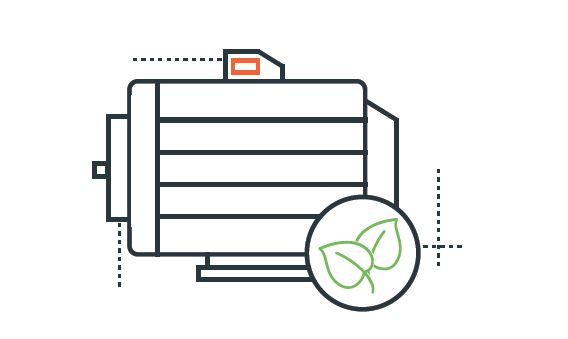As part of the ISPT-led ERGO project, Semiotic Labs analyzed anonymized current and voltage data from 303 industrial motors. They discovered that more than half of them could be rightsized to save energy, with savings of up to 53 percent. Rightsizing the single least efficient motor in the sample would save enough energy to power 29 homes per year.

Industry is responsible for nearly half of worldwide power consumption. Much of that energy is inadvertently wasted on motors that are too large for their applications and processes that are not as efficient as they could be.
In October 2019, a consortium of eight Dutch organizations launched the ERGO project to address the problem through technology. ERGO develops and validates features in Semiotic Labs’ smart predictive maintenance system, called SAM4, that helps industrial companies identify and improve wasteful processes and equipment without compromising output performance.
White paper SAM4 system
In a white paper released today, Semiotic Labs describes how the SAM4 system has the ability to use the current and voltage data it collects to estimate motor efficiency.
The paper also presents initial results for a representative sample of 303 industrial motors, with striking conclusions: more than half of the motors in the sample set were too large for their processes, with the potential per-motor energy savings running to 53 percent.
Replacing the single least efficient motor in the sample set with one properly sized for the application, would save enough energy to power 29 homes per year.
Starting point
Semiotic Lab points out that these insights are just a starting point. “It’s a huge undertaking to replace a motor, let alone redesign a process,” says Tom Gankema, one of Semiotic Labs’ data scientists and the author of the white paper. “There’s a complex conversation about hard decisions that comes after you’ve identified the problem. But the environmental benefits are significant, so it’s a conversation worth having.”
Read the white paper here.
Acknowledgement
This project is co-funded by TKI-E&I with the supplementary grant 'TKI- Toeslag' for Topconsortia for Knowledge and Innovation (TKI’s) of the Ministry of Economic Affairs and Climate Policy.